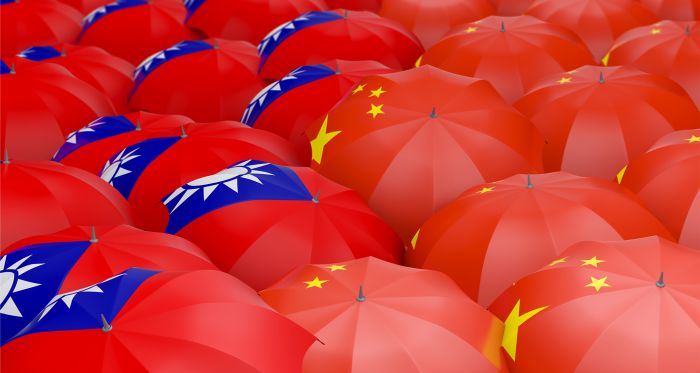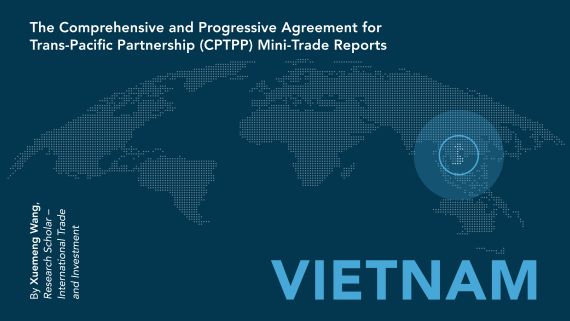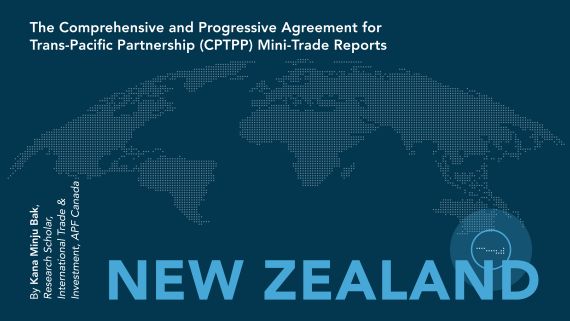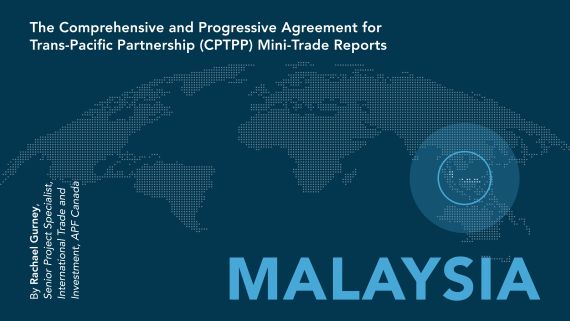Since the co-publication of our paper on this topic by the Asia Pacific Foundation of Canada and the Canadian Centre for Global Affairs in November 2022, there have been several CPTPP developments worth noting. The most significant is the accession of the United Kingdom in July 2023. At the Seventh Meeting of the CPTPP Commission, hosted by New Zealand, representatives signed the Protocol of Accession admitting the U.K. to CPTPP membership. It is expected that United Kingdom membership in the CPTPP will become effective in 2024 upon the passage of implementing legislation by the U.K. Parliament and after applicable legal procedures have been adopted in the other 11 members and notified to the Depositary. (New Zealand). The Seventh Commission also welcomed the ratification and entry into force of the Agreement for Chile and Brunei, thus completing the ratification process for the original 11 members.
In addition, since the publication of our 2022 paper, two more aspirant economies have officially notified the Depositary of their request to commence negotiations on acceding to the Agreement. The addition of Uruguay (December 2022) and Ukraine (May 2023) brings the number of aspirant economies to six, joining China (September 16, 2021), Taiwan (September 22, 2021), Ecuador (December 2021) and Costa Rica (August 2022). To date, apart from agreement on the accession of the United Kingdom, no formal accession negotiations have commenced for aspirants, although we understand that informal discussions between some aspirant economies and some members have been taking place.
Canada’s challenge as 2024 Chair
In 2024, Canada assumes the role of Chair of the Commission of the CPTPP and will have lead responsibility to move the accession process forward. The most pressing issue is the outstanding applications of China and Taiwan. This will require a creative approach.
Since the publication of our paper, bilateral relations between China and Taiwan have further deteriorated, exacerbated by Chinese sabre-rattling. The results of the Taiwan presidential election on January 13 will not improve cross-strait relations. Any possibility that Beijing might lessen its objection to Taiwanese membership in the CPTPP needs to be ruled out, at least for the foreseeable future. At the same time, the United States and Taiwan have concluded Part One of their Agreement under the U.S.-Taiwan Initiative on 21st Century Trade, and Canada and Taiwan have concluded and signed a Foreign Investment Promotion and Protection Arrangement (FIPA). The United States, not a member of the CPTPP but nonetheless an important and influential economy in the region, has also been proceeding to develop its Indo-Pacific Economic Framework for Prosperity (IPEF) with a number of Asia Pacific countries, some of which are CPTPP members, although the trade pillar of the four-pillar IPEF has not advanced. Meanwhile, deadlocks at the World Trade Organization have also not eased, making it all the more imperative that modern and open trade agreements such as the CPTPP continue to expand and welcome new, qualified members.
The pathway to membership
The key considerations for CPTPP membership that we outlined in our November 2022 paper remain relevant; ability and willingness to support the goals and principles of the agreement for the purpose of broadening regional economic integration as demonstrated by readiness to comply with its terms and conditions, plus a proven track record of compliance with previous trade obligations. Some aspirants are clearly more ready to assume the obligations of CPTPP membership at this time than others, with Taiwan and Costa Rica being the most prepared.
Given that the rules adopted by the CPTPP Commission require it to reach a decision, by consensus, on whether to commence the accession process for an aspirant economy “within a reasonable period of time after the date on which the aspirant economy made the Accession Request,” 2024 is surely the year when the issue of the bids of China and Taiwan must be addressed. China’s and Taiwan’s accession requests now date back almost two and a half years. Nonetheless, the “official line” from officials in CPTPP countries is that CPTPP members are currently focused on U.K. implementation, despite the fact that the U.K. has already tabled draft legislation in Parliament. While completing the agreed U.K. accession process is important, this should not be used as the pretext to avoid dealing with the outstanding question of other pending accession requests this year.
It is recognized that even though Canada will chair the Commission this year and will thus be able to exercise some leadership in moving the process forward, decisions must still be made by consensus. Nonetheless, the established rules require that a decision be made on whether to begin the accession process for qualified applicants; this decision cannot be postponed sine dei. Where aspirant economies have completed informal discussions with members and have demonstrated the ability to meet the terms of the CPTPP, it is incumbent on the Commission to start the process.
There are several ways to proceed, as noted in our original paper, including combining aspirants into manageable groups according to their degree of readiness in terms of demonstrated economic openness and ability to adopt necessary market liberalization measures. As Chair, Canada can play an important role in brokering the start of accession negotiations for aspirant economies that have satisfactorily completed all the preliminary steps outlined in the Commission’s document, “Comprehensive and Progressive Agreement for Trans-Pacific Partnership (CPTPP) – Accession Process.” The temptation to avoid or delay a difficult decision by simply proposing more discussions should be avoided. CPTPP members need to be clear with both China and Taiwan: if either or both meet most of the entry criteria, they should be put on a track toward succession and given a clear message about how they can finalize the process.
Achieving consensus among the members will be the most difficult part of the process. There is likely to be opposition to China’s accession based on its continued behaviour toward Taiwan and serious shortcomings in its economic readiness. However, some CPTPP members, such as Malaysia and Singapore – while publicly supportive of Taiwan’s bid – may wish to avoid granting it entry without China’s accession as well to prevent the impression of choosing favourites.
Recommendation: a new class of CPTPP membership
Creative solutions to this dilemma are called for. An option we recommend be considered would be to bring both applicants one step closer to membership by creating a new class of provisional membership through the establishment of a “strategic partnership” status. This would be similar to the status offered by ASEAN to non-members. (Canada became an ASEAN strategic partner last year). It would be important that this status be offered to both Taiwan and China at the same time. The strategic partnership offer would acknowledge the potential membership case for both economies but would outline the specific steps each would need to take to achieve full accession. CPTPP members would commit to moving each aspirant to full membership once the Agreement’s terms are satisfactorily met for all participants. In the meantime, provisional membership could potentially allow participation in CPTPP working groups and meetings as observers.
This approach provides equitable treatment to both China and Taiwan while recognizing substantive differences in the measures each country would need to take to achieve full membership. It would be up to China and Taiwan whether to accept, reject, or seek to negotiate the terms of the strategic partnership. If China rejected such an offer, that would still leave Taiwan in a position to chart a clear path to eventual accession. This approach would acknowledge the concerns of those CPTPP members who seek to avoid excluding China but who have accepted that potential members must fully meet the conditions and obligations of entry. A strategic partnership would also be understandable to members who also belong to ASEAN since they have had a similar process for many years.
We believe the interim step of creating a strategic partnership category, initially for China and Taiwan, as they are the next applicants in line according to date of application, would help break the logjam that threatens to block progress toward CPTPP expansion.
While political considerations will likely continue to play a role in eventual accession considerations (even though, in our opinion, they should not), we nevertheless feel the accession process should commence this year based on a focus on economic readiness. A creative approach such as the one suggested above could help move the process forward. We look to Canada to exercise leadership in achieving the necessary consensus among current members to allow this to happen.






